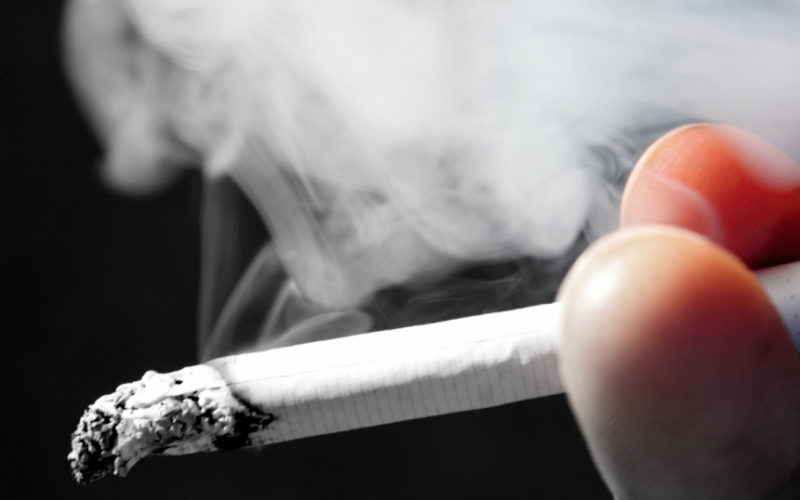The creativity exhibited by youths who participated in the #Smokefree Nollywood Skit Challenge organised by Nigerian non-governmental organisation – the Corporate Accountability and Public Participation Africa (CAPPA) – shows that the sun has indeed set for the young in Nigeria’s tobacco control journey.

A total of 126 youths that participated in the competition attempted to convey the truth about tobacco use and addiction and the need for the Nigerian government to demonstrate seriousness in banning Tobacco Advertising Promotion and Sponsorships (TAPS) in movies and entertainment sector.
The youths are the centerpieces of every movie in Nigeria. They are the main characters and drive the plot. However, smoking has become a common feature in Nigerian movies. Research conducted by CAPPA in 2019 showed a high level of smoking in Nigerian movies. Screening randomly selected movies especially those watched by the youth in the three major movie hubs – Yoruba, Hausa and Igbo, CAPPA found 36 that had preponderance of scenes that glamourise smoking. In the screened movies, tobacco smoking was portrayed as widespread, socially acceptable, desirable, and classy.
According to World Health Organisation (WHO), each year, the tobacco industry spends tens of billions of dollars to market its products, which kills up to half of its users. Using increasingly sophisticated and covert forms of tobacco advertising, promotion, and sponsorship (TAPS) to maintain and increase its customer base and normalise tobacco use.
The tobacco industry links its products with success, fun, and glamour. The results are devastating for public health, with new users ultimately lured into a lifetime of addiction. In countries around the world, the many forms of TAPS create an illusion that tobacco is just an ordinary consumer product, rather than a deadly product that kills up to half of its users.
The WHO has proposed a total ban on direct and indirect advertising, promotion, and sponsorship, as provided in guidelines to Article 13 of its Framework Convention on Tobacco Control (FCTC). The body believes such a ban can substantially reduce tobacco consumption and protect people from industry marketing tactics. To be effective, bans must be complete and apply to all marketing categories.
Otherwise, the industry redirects resources to non-regulated marketing channels. Mind you, the tobacco industry strongly opposes comprehensive bans because they effectively reduce tobacco use.
Tobacco companies rely heavily on advertising and other promotional techniques to attract new users, who they feel are critical to maintaining demand for tobacco products because they replace smokers who quit or who die prematurely from tobacco-related illness. In countries whose populations are growing more rapidly than rates of tobacco use are declining, advertising will increase the market for tobacco even further. To counteract the tens of billions of dollars spent worldwide each year by the tobacco industry on advertising, promotion and sponsorship, prohibiting all forms of TAPS activities is proposed.
Most countries supported by their big movie production companies have created laws, regulations, and guidelines to protect their screen and the youths from tobacco adverts. Starting with the US, in 1998 following what has come to be known as the Master Settlement Agreement, the movie and music industry started putting in place policies to check the influence of the tobacco industry in movies and music.
India banned tobacco product placements or showing of brand names in movies in 2005. Only in exceptional circumstances are the use of tobacco allowed after strong graphical representations have been made by film makers. They are mandated to air 30-seconds anti-tobacco spots and at least 20 seconds disclaimers prepared by the Ministry of Health and Family Welfare on the negative effects of tobacco.
In 2006 Universal Pictures banned smoking in its movies. Sony Pictures Entertainment (SPE) in December 2012 adopted a standard protocol to identify, and “where appropriate and feasible, eliminate portrayals of tobacco use”. In January 2013, Paramount Pictures discourages the depiction of smoking or tobacco in youth-rated films.
The National Tobacco Control Act which was passed in 2015 and the National Tobacco Control Regulations 2019 contain provisions prohibiting tobacco advertising, promotion, and sponsorships in movies and entertainment. Section 12(1) of the Act provides for a comprehensive ban on tobacco advertising and promotion, stating: “no person shall promote or advertise tobacco or tobacco products in any form”.
The First Schedule of the Act provides examples of tobacco advertising and promotion that are prohibited (without limiting the application of the ban), including the “product placement, such as the inclusion of, or trademark in the context of communication in return for payment or other consideration”. The tobacco industry, acutely aware of the illegality of direct advertising and promotion, uses movies and entertainment outlets as the final promotion frontier, which is why the Nigerian government needs to be more proactive and enforce the law.
The Nigerian movie industry is a booming industry, and it is estimated that more than 2600 Nollywood movies are produced yearly, and they are a high reflection of the Nigerian society.
The ever-growing number of smoking scenes in Nigerian movies has put the searchlight on the level of regulation of the industry. It’s no secret that smoking is a big problem in Nigeria, and the entertainment industry plays a big role in deepening the smoking culture as entertainment remains a powerful tool for the dissemination of information, ideas, and promotion of alternative lifestyles.
Advertisements for tobacco products are found in movies, musical videos, and product placements on television shows. This poses a huge threat to the nation’s healthcare system.
It is in the light of this that the #smokefreeNollywood Skit Challenge opens the path for the youth, currently relegated to the background in the tobacco campaign find a voice.
Such initiatives are also a wakeup call to the Nigerian government to harness the power and creativity of the youths into the Smoke-free Nollywood campaign to ultimately achieve the ban on tobacco advertising, promotion and sponsorship.
By Anjola-Jesu Fatuase, Corporate Accountability and Public Participation Africa
